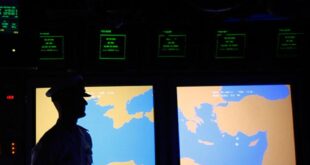Annual celebrations of Bosnian independence day have again proved ethnically divisive and will only be marked in the Bosniak-Croat Federation entity, not by the country’s Serbs.On Friday, March 1, Bosnia and Herzegovina will mark 21 years from the 1992 referendum in which mainly Bosniak and Croat citizens declared their wish for the country to be independent and leave Yugoslavia.
But the referendum was boycotted by Bosnian Serb voters, who this year are again refusing to mark the day as a holiday.
Independence day will be a non-working holiday only in the Bosniak-Croat-dominated Federation entity and not in the country’s other political entity, the Serb-run Republika Srpska.
Federation Prime Minister Nermin Niksic congratulated all Bosnian citizens on the upcoming holiday, and called it “a symbol of the many centuries of existence of Bosnia and Herzegovina”.
“On March 1 in 1992, Bosnian citizens decided to live in an independent state. This is a historical fact which we are proud of and those who refuse to mark the day cannot deny it. Bosnia and Herzegovina is a state of all its citizens, peoples and ethnicities, and will always remain so,” said Niksic.
The Bosniak and Croat members of Bosnia’s tripartite presidency, Bakir Izetbegovic and Zeljko Komsic, also issued statements commemorating what they said was a historic day.
“We must never forget those who have given their lives to defend liberty,” said Izetbegovic.
“Let us keep trying to develop mutual trust and create a society of equal possibilities, which will be the pride of all its citizens, regardless of their ethnicity or political view,” he said.
Komsic called for more trust and cooperation between different communities.
“After all we’ve been through, we must try to rebuild trust among people. Let us recognise what we have in common, which is valuable and human,” Komsic said.
But Bosnian Serb and some Croat politicians rejected the possibility that March 1 could ever become a holiday for all Bosnian citizens.
Slavko Jovicic, a Serb lawmaker in the Bosnian parliament, said that the date only brought “unhappiness, war and tens of thousands of victims on all sides”.
The president of the Croatian Democratic Community 1990 political party, Bozo Ljubic, said meanwhile that Croat citizens of Bosnia have “little reason to celebrate any date in the modern history of Bosnia and Herzegovina”.
“We should try and work toward deciding on official holidays we can all mark together,” said Ljubic.
After choosing independence at the March 1992 referendum, Bosnia and Herzegovina was plunged into a war which lasted until the 1995 Dayton peace agreement ended the conflict and left the country divided into its two political entities.
 Eurasia Press & News
Eurasia Press & News



